Tan Hoa, located in Minh Hoa district, Quang Binh, is often described as a giant water basin. Surrounded by mountains on three sides, floodwaters from various sources converge here, with only one narrow mountain pass for drainage. As of September 20, around 430 homes in the area were submerged by 0.5 to 1.5 meters of water.
In the past, flooding forced residents to evacuate to higher ground, leaving behind their belongings and livelihoods. When they returned, the devastation left them reliant on donations and aid. However, after the catastrophic flood of 2010, the residents of Tan Hoa found a solution - floating houses.
Since 2011, local residents have been building floating houses, using a design inspired by traditional flood rafts. These homes have been continuously improved for safety, making them the optimal solution for life in a flood-prone region.
“When we’re warned about an upcoming flood, we move our belongings and supplies onto the floating house. We stock enough food and water for 10-15 days,” said Dinh Thi Thu, a resident of Tan Hoa. “When the water reaches the yard, we move into the floating house. The house rises with the water, so we feel completely safe.”
The floating homes allow people to live and work normally during the floods. The floods even benefit the community by leaving behind fertile soil for farming once the water recedes.
From above, the village is dotted with blue-roofed floating houses, standing out against the muddy floodwaters. Each family has a boat to help them navigate the submerged village, making it easy to tend to livestock and get around.
“The people of Tan Hoa no longer fear the floods,” said Truong Thanh Duan, Chairman of the People's Committee of Tan Hoa. “They have learned to live with them, and now, floods are just part of life.”
With floating homes becoming part of the local lifestyle, Tan Hoa has even seen economic opportunities grow through tourism. Visitors come to explore the region, and floating houses are now used as homestays, allowing tourists to experience life in a flood-prone village. This additional source of income has improved living standards for many locals.
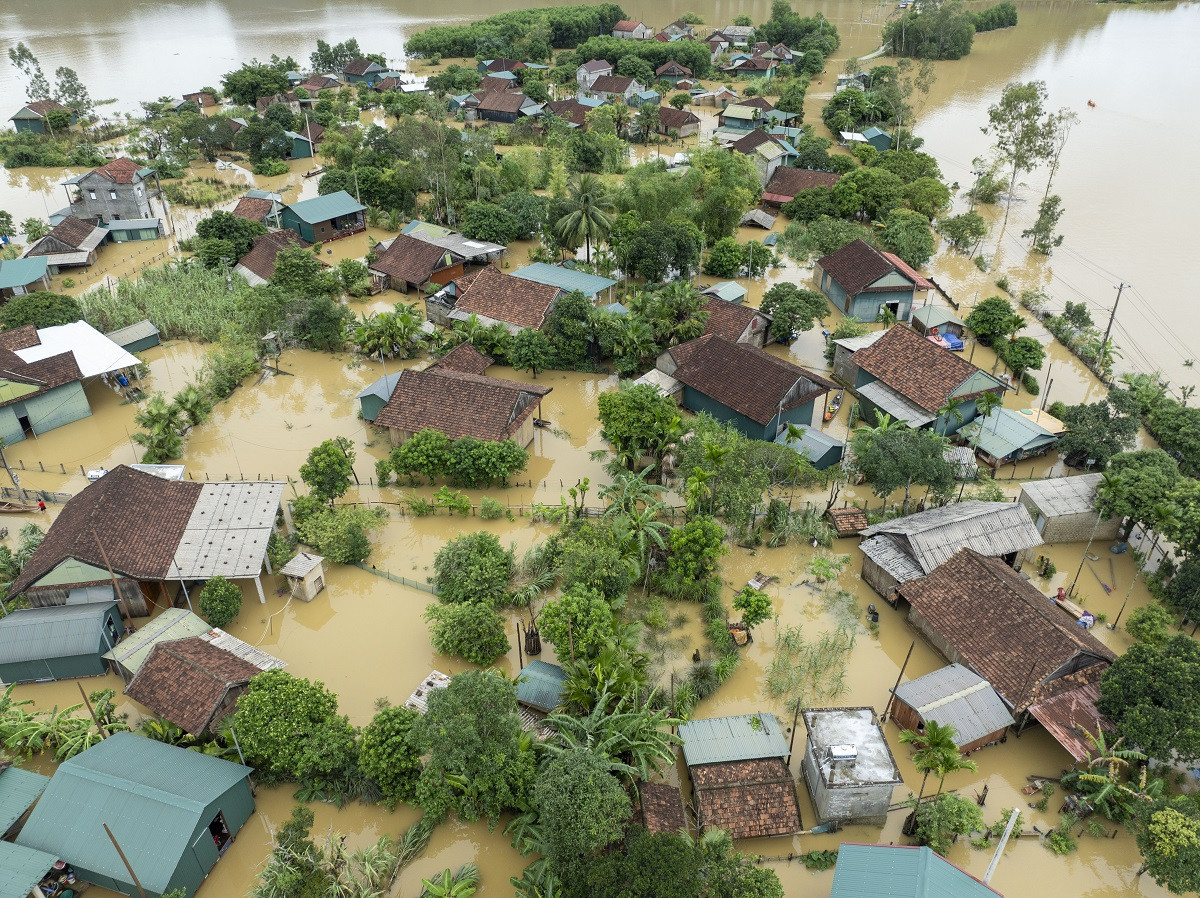
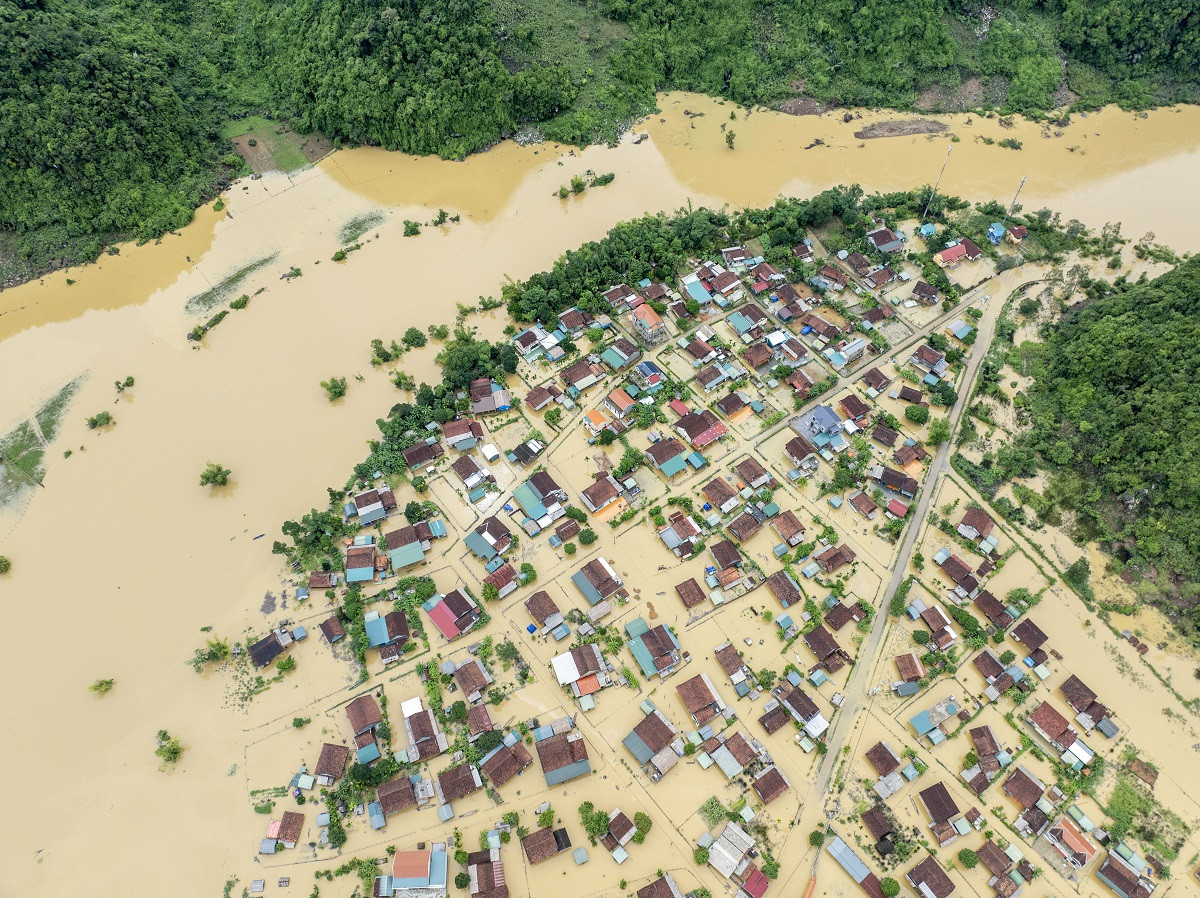
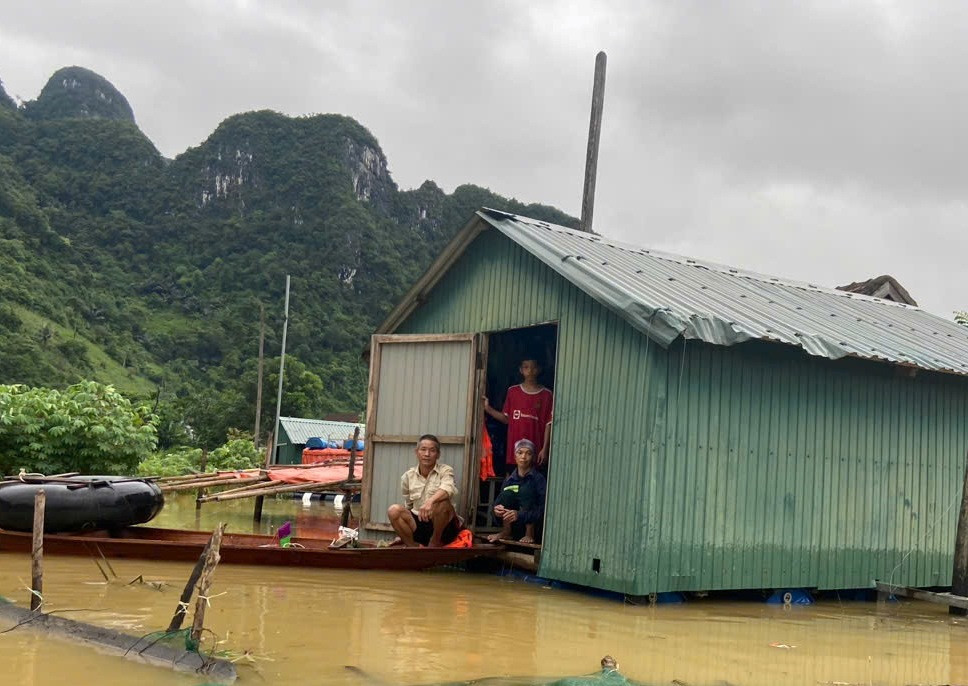
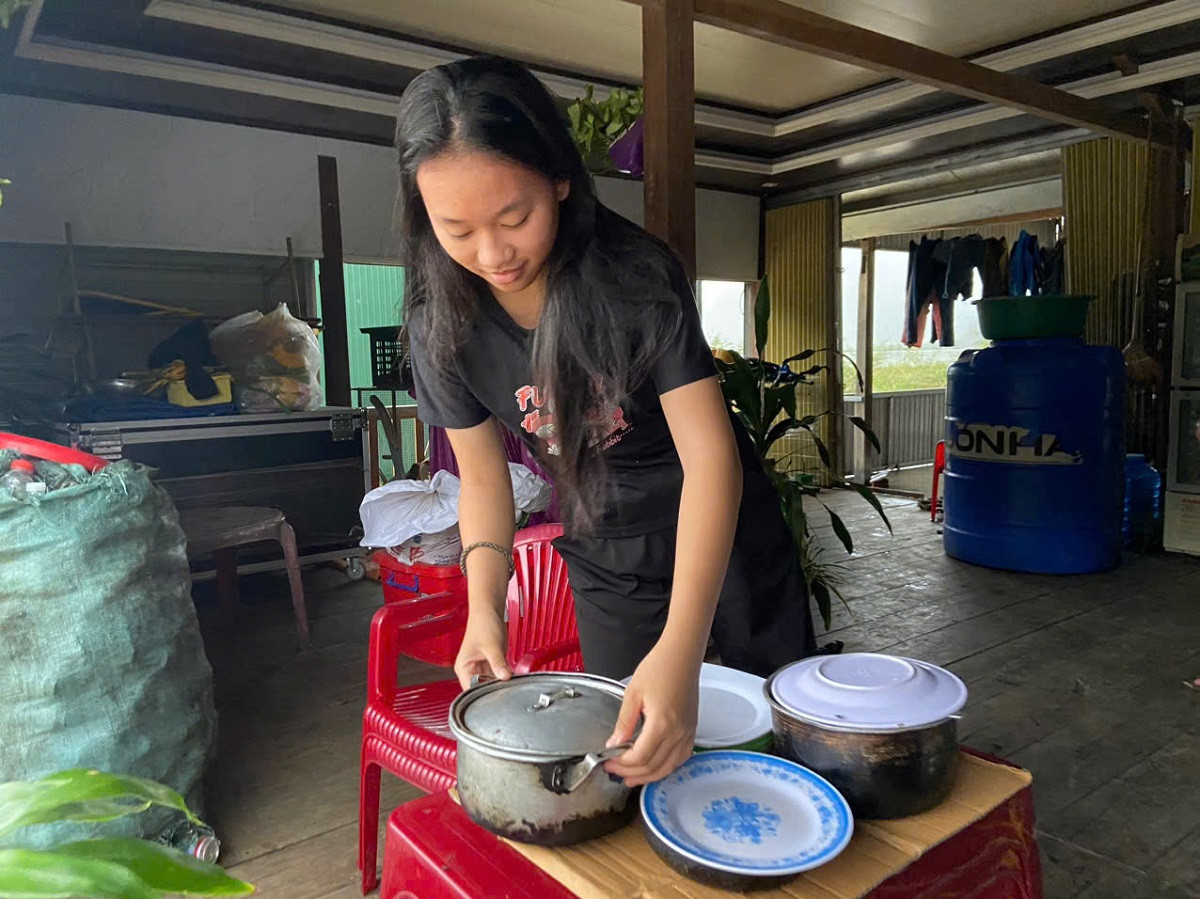
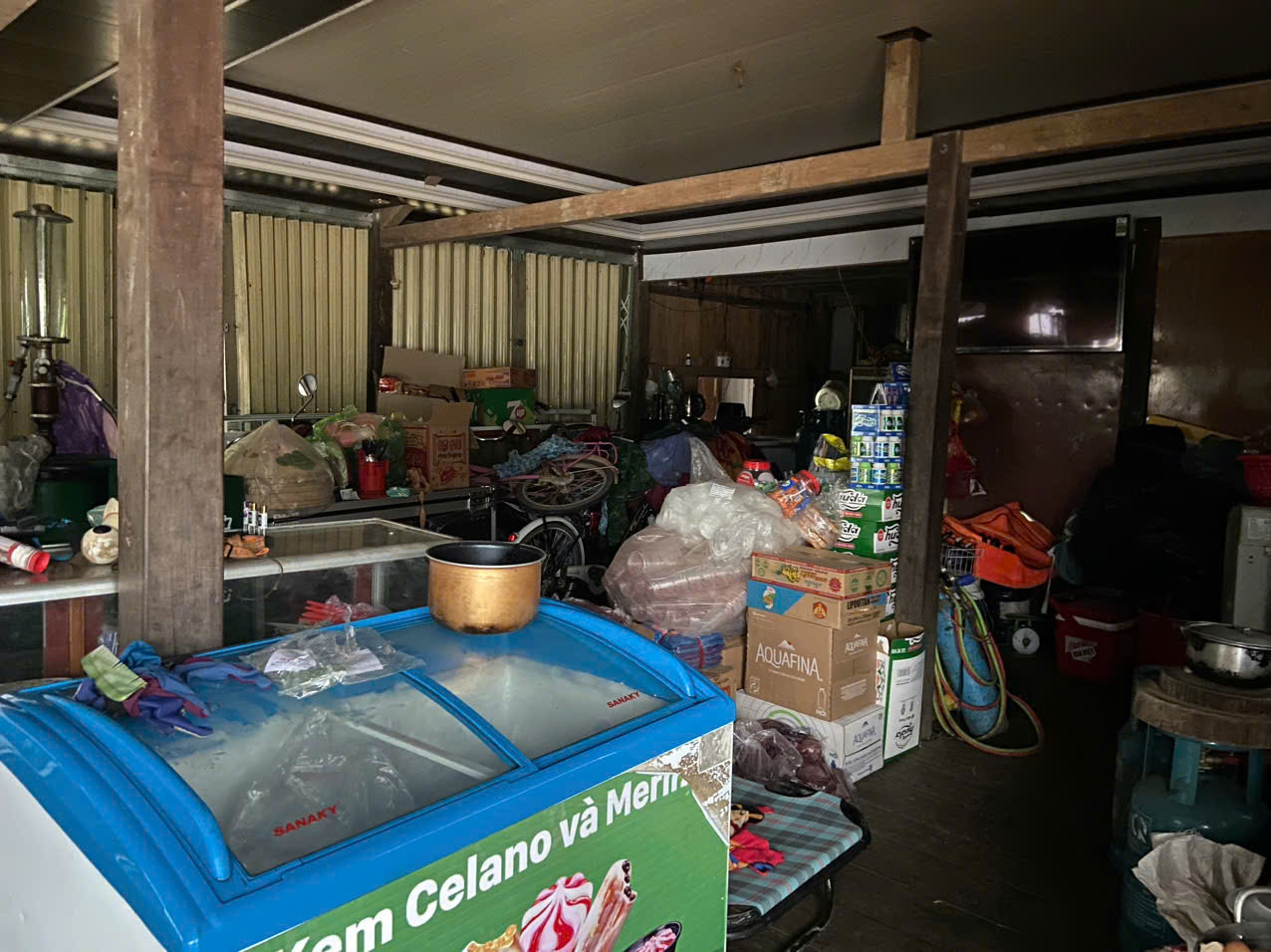
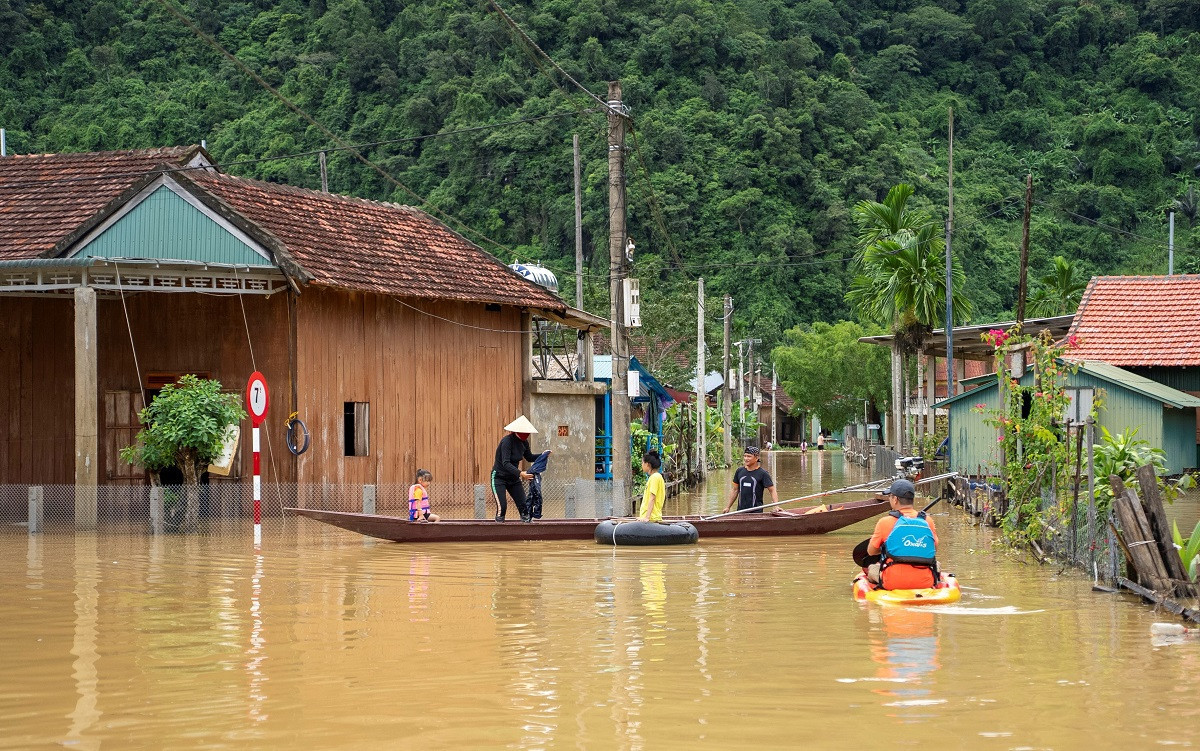
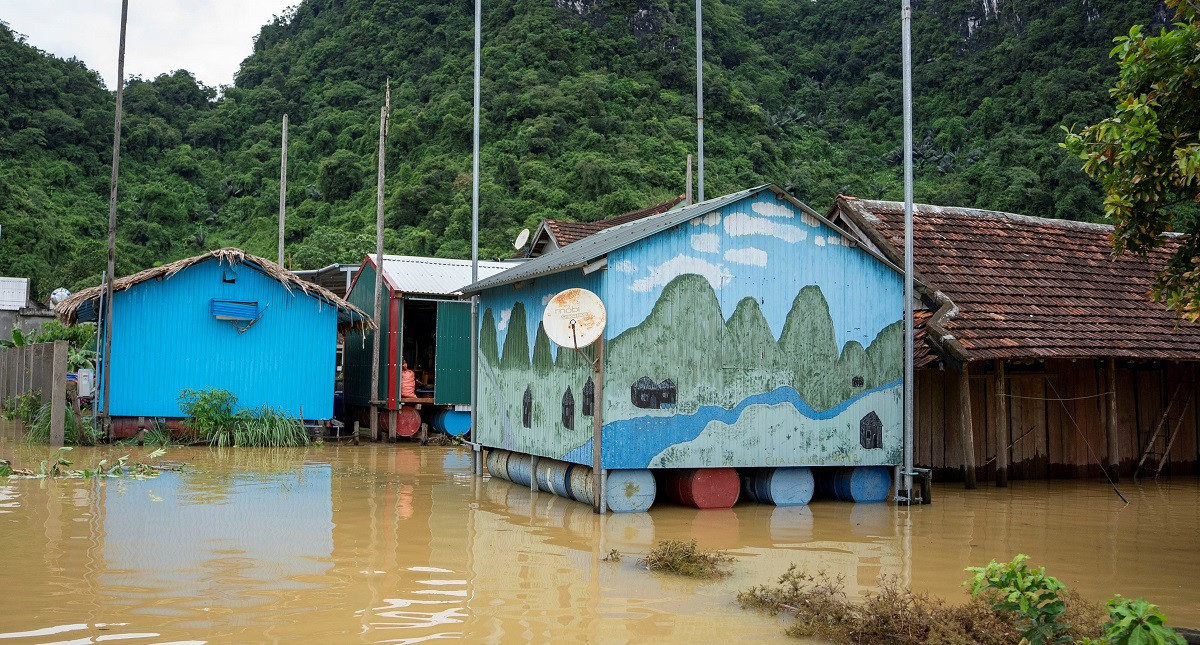
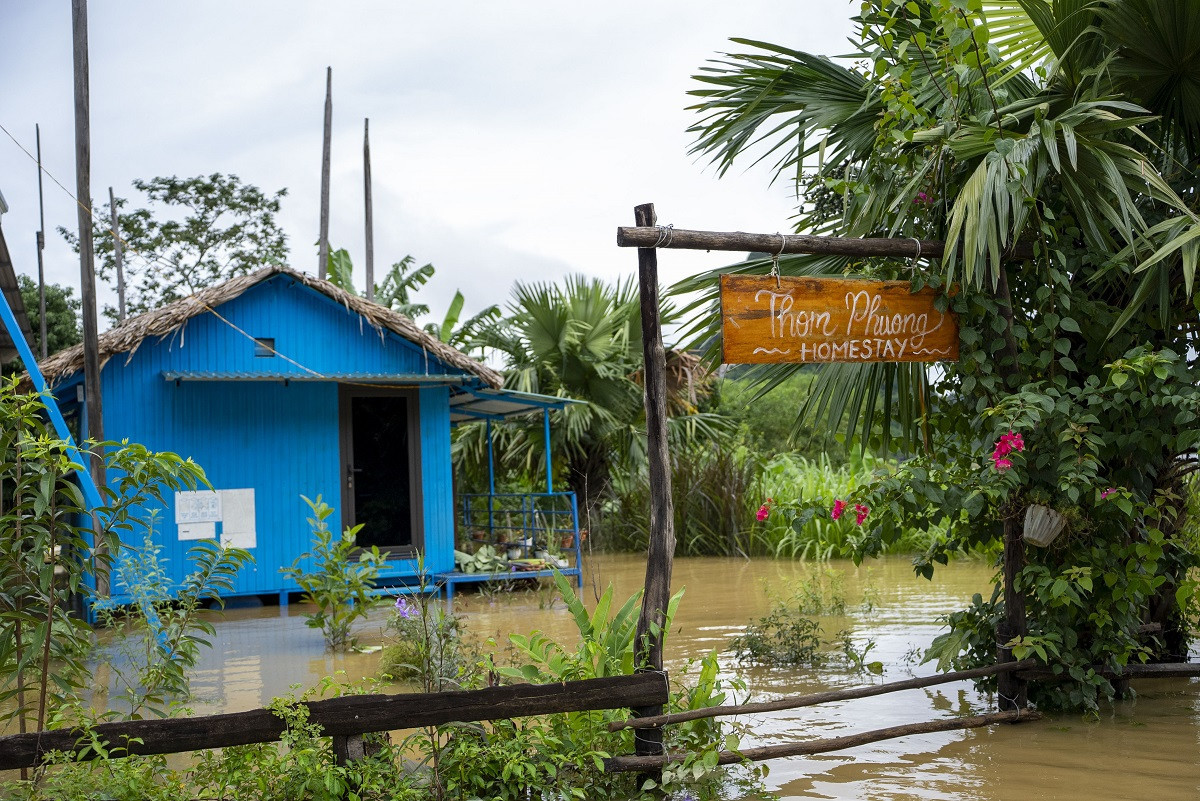
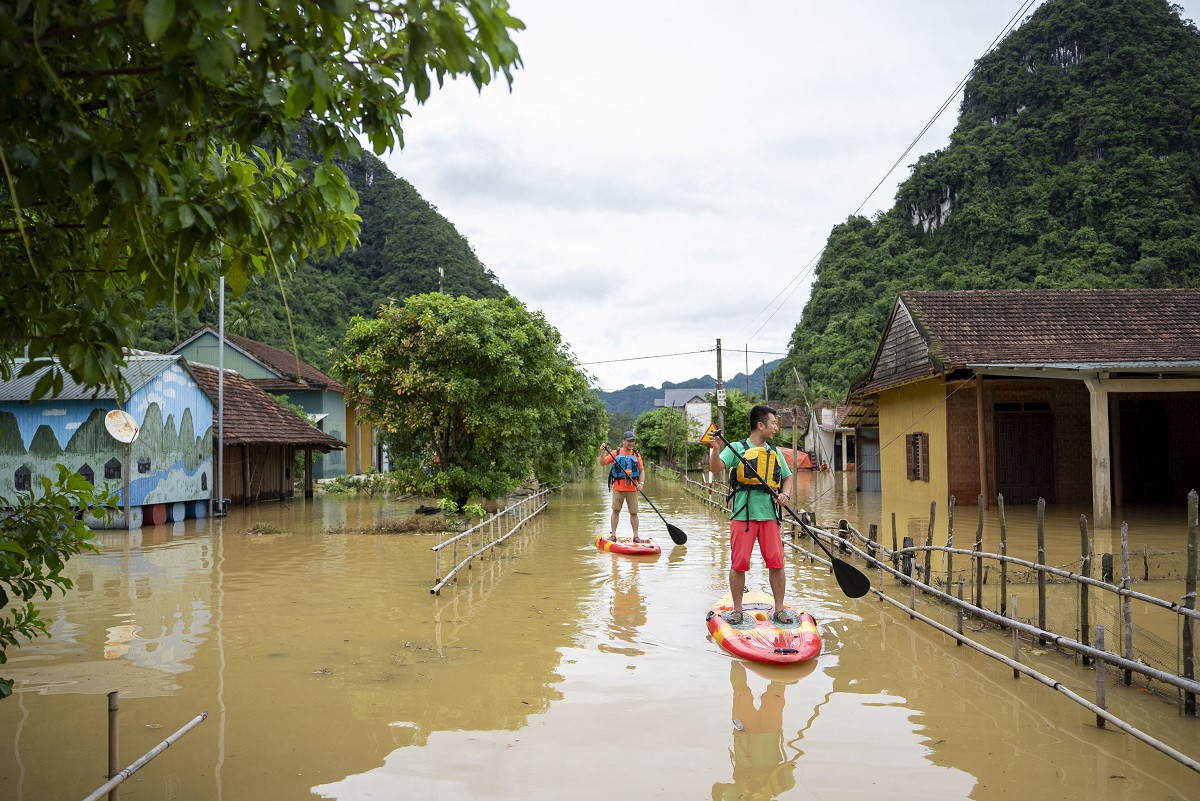
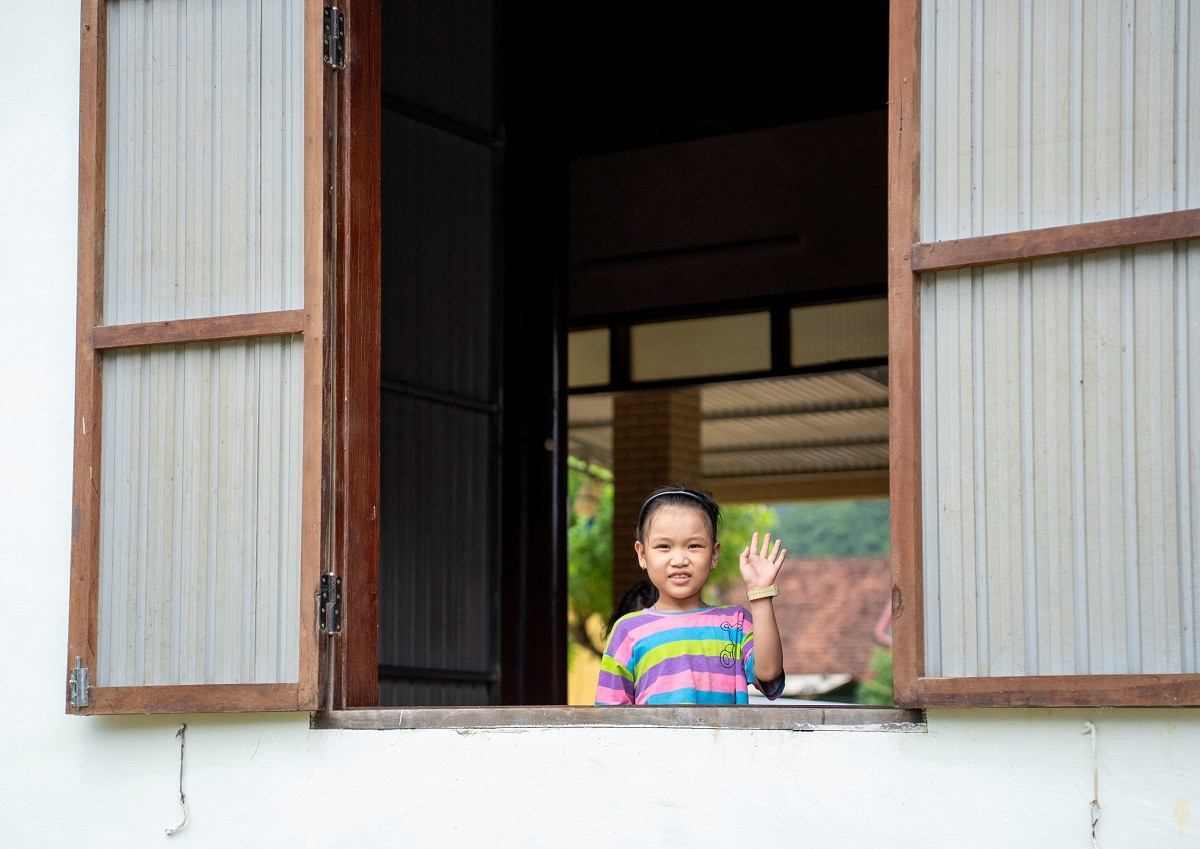
Hai Sam